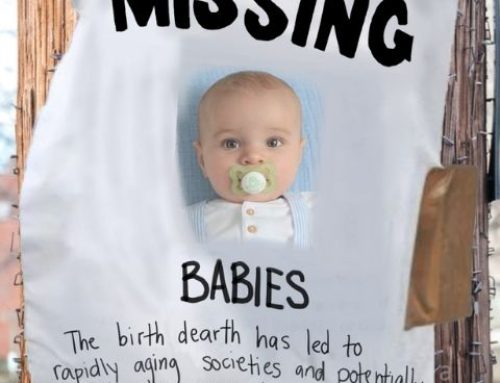It’s back-to-school time and parents and students alike are experiencing the university jitters. First-year students are anxious about the unknown social and academic challenges that lie ahead, while parents – well, parents always worry. The students want to know what they are facing and the parents will want to know whether there is any real basis for concern. Should they be worried? And about what? Our investigation into these questions starts in an unlikely place – literary fiction.
The iconic American author Tom Wolfe has written such bestselling books as The Bonfire of the Vanities and The Right Stuff. One of the founders of the New Journalism movement, Wolfe deliberately uses his books to document various elements of contemporary society that he believes are central to the zeitgeist. For his 2004 novel I Am Charlotte Simmons, he spent time at numerous American universities, including Princeton, the University of Michigan, and the University of Florida, mingling with the students in order to discover first-hand what their experiences are like and whether certain rumours he had been hearing were really true. The resulting story, told from the perspective of a naïve young girl, shocked readers for its explicit depiction of an environment dominated by sexual licence, alcohol abuse and social status.
As he explained in an interview with The Nerve, the 78-year-old author was himself astonished by what he found. Some critics found fault with Wolfe’s heavy focus on the sexual element, but he believes it was justified, considering how heavily this behaviour factored into the student’s lives: “I was surprised by the pressure sexual licence puts on women. It’s also put on men, but women especially. They quickly get the idea that first you come across (i.e. have sex) and then you get to know the guy. You might even learn his name. But everything is expected to be done backward. First the dessert and then, maybe, if you’re really lucky, you get back to the appetizer.”
For a journalist who covered the 60s, his shock is somewhat surprising: “I knew that there was, to put it mildly, sexual freedom, but I was surprised that it was an atmosphere that hit everybody.” He felt certain that bizarre institutional decisions such as co-ed bathrooms and dorms were a factor in the high level of sexual promiscuity he discovered.
Wolfe saw alcohol as a contributor to sexual licence: “So much of sex in college is closely tied in with drink. I think most hookups are influenced by alcohol. I don’t think many women are going around just jumping into bed with some available guy, just because he’s cool or an athlete. I’m sure it happens, but that’s the common medium.”
Not all students are necessarily engaged in this lifestyle, Wolfe admitted. For this reason, he includes a character in the novel who is a senior and virgin, though reluctant to admit it in the face of peer pressure.
Wolfe isn’t the only author to document this hook-up culture, which seduces many students, or witness the physical and psychological fallout of loose living on campus. Dr. Miriam Grossman worked for 12 years as a campus psychiatrist at University of California, Los Angeles (UCLA). During this time, she was at the receiving end of a stream of youths who had been emotionally and physically scarred by deviant behaviour, yet who frequently showed the utmost surprise to find themselves in such a condition.
In 2006, Grossman anonymously published her first book, Unprotected: A Campus Psychiatrist Reveals How Political Correctness in Her Profession Endangers Every Student, a scathing indictment of what she saw as a major failure on the part of her colleagues, at UCLA and at large, to properly educate and warn students about the risks of such behaviour. Since then she has come forward to speak publicly about her experiences and criticisms, this year publishing her second book, You’re Teaching My Child What? A Physician Exposes the Lies of Sex Education and How They Harm Your Child.
Grossman spoke to The Interim passionately and at length about the topic that has become her personal crusade, and in doing so, verified many of the same observations Tom Wolfe made. About her time at UCLA, Grossman said, “Over the course of those years, I had many students (who) came in and they were suffering from conditions that were 100 per cent avoidable. And that was very frustrating to me.” These conditions included sexually transmitted infections as well as emotional problems: “I saw a lot, a lot of kids, mostly young women, who I concluded were suffering; they were casualties of the culture on our campuses, the ‘hook-up culture.’ But more than that, I discovered that my profession, which is the health profession, is not providing them with all the information that they need to make the smart choices.”
The girls were not being taught the science, Grossman went on, and thus were engaging in high-risk behaviour with male partners who were not in danger of suffering the same level of physical or emotional consequences. For instance, the female body is more susceptible to infections, especially at a young age, while the chemistry of the female brain is “wired” so that involuntary emotional attachments are formed through sexually related activities.
The patients who came to her were then confused about why they were developing attachments to casual partners: “They would come in and say, ‘What’s wrong with me’?” They wanted sex without strings, and were learning the hard way that the human person was not built for that. “I concluded that these girls didn’t know they’re own biology,” said Grossman. “They hadn’t been taught.”
Like Wolfe, she saw a direct link between promiscuity and heavy drinking. According to a recent study, 1,700 college students die each year from alcohol-related causes, more than 97,000 students are victims of alcohol-related sexual assault or date rape annually and 400,000 students have unprotected sex under the influence of alcohol each year. “See, here’s the interesting thing,” said Grossman. “A lot of kids have told me that their poor choices, sexually, didn’t result from their drinking; rather, they were drinking because they felt pressured to behave in certain ways that they wouldn’t have, that they weren’t capable of, unless they were buzzed or intoxicated.”
After reading all of this, a parent might be excused for feeling inclined to lock her children up and throw away the key, rather than send them off to an institution of higher learning. But Grossman admitted the experiences of the patients she dealt with could not be considered as necessarily representative of the general student experience. “I was just seeing a select population of kids that ended up in a psychiatric office.”
When asked what advice she would give to a student entering university, Grossman said that, from a medical perspective, the best possible thing a person could do for themselves in the realm of sexuality is “to delay sexual behaviour and then meet somebody who also delayed sexual behaviour and then stay monogamous with one another – they will never have to worry about any of these things.”
What advice do students give to those entering university or struggling with being true to themselves at school?
Five things students should do to uphold their values
1) Have friends who share your values.
2) Avoid tempting situations.
3) Know the reasons for your own beliefs, as well as objections to those beliefs.
4) Have faith in your convictions.
5) Be active about your views.
In an email interview, David Pederson, a second year philosophy student at Princeton University, told The Interim, that there are five things students should do to ensure that they stay true to their values: keep friends who share similar values; avoid tempting situations, know one’s own beliefs, the reasons for them, and the objection, too; have faith in one’s convictions; be active in one’s views.
Pederson, a member of the Anscombe Society at Princeton which is dedicated to affirming the importance of the family and a proper understanding for the role of sex and sexuality, said that “even a small circle of morally grounded friends” who share the same values can help students “resist the immense pressures of college life.” Relatedly, students can avoid “morally compromising situations” by associating with the right crowd. Pederson said, “Trying to get as close as you can to temptation without succumbing to its pull is sheer folly; such a plan is almost certain to fail.”
Being knowledgeable about one’s values is essential. Pederson explained, “Once you realize that your own views are grounded in reason, and that the prevailing liberal orthodoxies are not, it becomes much easier to stand firm in the face of social pressures.” It is important for students to understand their values have solid intellectual reasons, yet at the same time, having intellectual or religious faith in one’s convictions will help in retaining one’s morals even in the face solid arguments.
Getting involved in campus pro-life groups or other organizations that uphold traditional values is an excellent way to meet like-minded students. Also, Pederson said, “being a part of enterprises dedicated to such worthy causes will invigorate and reaffirm your moral beliefs.”
Isabel Zaw-Tun, 20, is going into her third year at Queens University, pursuing a degree in the Drama and English. Her story is an example of how student experiences can differ widely between campuses, social groups, and individuals. A self-described “cradle Catholic”, Isabel attended a private Catholic high school where she says the staff prepared her for the moral perils of university, “in an almost paranoid sort of way.” She expected to find her beliefs under constant attack, but “that didn’t happen at all.”
Zaw-Tun told The Interim she saw very little during her time on Queens campus of the flagrant immorality described by Wolfe and Grossman, with the exception of heavier swearing. Instead, she encountered a different flaw in the social environment that left her deeply unsatisfied: “I was faced with something I find even more challenging. which was just this complete moral, even political and intellectual apathy.” She described the campus zeitgeist as “very live and let live.”
She emphasised her frustration with this apathy, and how difficult it was to engage people on a deeper level. She expressed strong disapproval with the methods of evangelization used by the organization Campus for Christ, who she said only managed to further the stereotype that all people of faith are fanatics. She was turned off by Campus for Christ’s awkward attempts to be make Christianity more relevant to the youth. “I think that the best way you can convert someone is by living a good life and setting a good example,” she said. Thus, Zaw-Tun urges new students to not be afraid to live their faith and values openly.
As Pederson says, “It takes much greater courage to stand up to a culture than to go along with it.”





